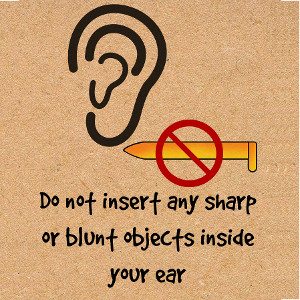Audiologists are qualified and accredited hearing healthcare professionals who specialize in certified evaluation, diagnosis and treatment of hearing loss. Quadio has on board a team of highly-qualified audiologists responsible for superior hearing healthcare management for you. The team is also responsible for the design of the Q+ mobile app's inbuilt hearing test.
Kaustuv Ray and Pushpa Yumlembam, members of the Quadio audiology team, answer some frequently-asked questions about hearing health and hearing loss.
What are the biggest challenges as far as hearing health awareness and hearing loss management are concerned?
Hearing loss comes on gradually and this limits initial awareness. Lack of screening leads to lack of early detection of hearing loss and people usually turn to hearing health rehabilitation when hearing loss has progressed to a high degree. Awareness about hearing health and early screening can help people take measures to arrest the degree of hearing loss and lead a better quality of life.
Other challenges are a scarcity of affordable hearing aids and hearing health care services.
What are the common symptoms that indicate hearing loss?
An inability to follow conversations clearly, having to ask people to repeat sentences, thinking people are not speaking clearly, difficulty in hearing over background noise, turning up the volume of a TV or music system at a level more than what other people in your household require and ringing in the ears are all some common symptoms that can indicate hearing loss.
Sometimes a feeling of disorientation and dizziness can indicate damage to the vestibular cells in the ear.
How do you conduct a hearing test and fitting at Quadio clinics?
A hearing test at a Quadio clinic is conducted using the following procedure:
- Otoscopic examination with an otoscope.
- Audiometry using a Quadiometer and Quadio software.
- Generating the audiometry report with the audiologist signature.
- Explaining the audiometry report based on type and degree of loss and other referrals, if required.
- Counselling for hearing loss treatment methods.
Based on the report, if the patient is a hearing aid candidate, the fitting process is carried out:
- Selection of a hearing aid depending on the degree and pattern of hearing loss.
- If the hearing aid selected is a Quadio hearing aid, fitting is done using Quadio software.
- If the hearing aid selected is a third party hearing aid we use a third party software for the fitting, for example, Phonak Target for Phonak hearing aids.
How frequently should hearing be tested? What are the benefits of testing hearing?
If you are above the age of 50, you should get your hearing tested annually. If your job involves continuous exposure to noise or if you feel that you are having trouble understanding conversations, you should get your hearing tested.
For persons wearing hearing aids, hearing tests should be carried out every six months.
Regular hearing hearing tests can help detect any signs of hearing loss and help you take corrective action as soon as possible.
Will a hearing aid restore hearing?
Hearing loss is caused by damage to the fine hair cells within the ear and these cannot be regenerated by the human body. Hearing also diminishes as a person ages and this is normal.
Unlike an eyeglass prescription that can help restore vision, a hearing aid cannot cure hearing loss or restore hearing to the degree that someone had when they were young. A hearing aid, however, helps you to hear better, improves communication and compensates for a hearing loss condition.
Does hearing get worse if loss is not treated?
Hearing loss can get worse if not treated on time. Prolonged negligence of hearing loss diminishes the brain's capacity to process sound and can cause hearing loss to worsen. This is called hearing loss due to auditory deprivation.
This is also a reason why binaural (for both ears) is a recommended hearing solution even if one ear has worse hearing loss than the other. If a hearing aid is fitted only for the worse ear, auditory deprivation in the other unused ear causes it to experience faster hearing loss.
Will wearing a hearing aid reduce the chances of hearing loss getting worse?
Yes, wearing a hearing aid can reduce the chances of hearing loss getting worse. Advanced technology in today's hearing aids provides great benefits for compensating for hearing loss.
How can a person get the maximum benefit from their hearing aid?
A person can get maximum benefit from their hearing aid when they get hearing loss treated on time. If a person has hearing loss in both ears, the greatest benefit can be achieved if they wear hearing aids for both the ears (binaural).
How long does a hearing aid last? What care can be taken to ensure longevity?
The average life span of a hearing aid is about five years. However, if hearing loss does not increase, the hearing aid can last more than five years if it is properly cared for and maintained.
To increase the life of your hearing aid, follow these steps:
- Clean the hearing aid regularly with a soft and dry cloth.
- Minimize moisture in the hearing aid.
- Protect the hearing aid from rain or water.
- Do not place the hearing aid near any heat-producing sources.
- Remove ear wax from the ear mould.
- Use a small wax brush to remove wax if it is a custom hearing aid.
- Switch off and put the hearing device in its case when you are not wearing it.
- Give the hearing aid for periodic servicing to an authorised center.
What are analog and digital hearing aids?
Analog hearing aids amplify all sounds and are generally cheaper than digital hearing aids. Digital hearing aids do not just amplify sounds but convert the analog sound into a digital signal and process the sound configuration.
Many analog hearing aids are simple amplifiers which amplify all sounds, which can sometimes cause further hearing loss. Digital hearing aids can perform selective amplification which allows you to hear soft sounds better while loud sounds are not amplified to uncomfortable levels.
Digital aids are also highly programmable and can offer specific solutions for your requirement, leading to a better overall hearing experience. Analog hearing aids are based on analog electronic circuits which are less flexible than their digital counterparts in terms of programmability.
What precautions do you recommend for protecting ears and hearing?
- Avoid exposure to loud sounds or music for long durations. If this is unavoidable, wear earmuffs or earplugs to protect your ears.
- Do not clean your ears by sticking objects into the ear canals.
- Use only medicinal wax to clear wax from your ears.
- Avoid swimming in dirty water.
- Dry your ears after bathing. Water in the ears can cause an ear infection.
- Consult your doctor if you are taking drugs and chemicals for a long period.
Does medication affect hearing ability?
Certain drugs and chemicals, if taken for a long period of time, can cause hearing loss.
For example, aspirin taken in large doses or certain antibiotics can cause hearing loss. Many times, the hearing loss due to medication is temporary and your hearing returns to normal when you complete your medicine course. However, some medicines can cause permanent hearing damage.
It is always advisable to contact your doctor immediately if you experience unusual symptoms such as a ringing sensation (tinnitus) in your ears.
You should also get your hearing tested regularly if you are on a prolonged medical regimen.
What approach works best for treating hearing loss: medication, surgery or hearing aids?
All types of hearing loss cannot be treated with medication or surgery and all hearing loss cannot be fitted with a hearing aid.
The correct approach for treating hearing loss depends on the type of hearing loss and that can only be decided based on symptoms and an audiometry report from an audiologist.
Disclaimer: This article provides general information on hearing loss. Please consult a healthcare professional for your specific diagnosis and treatment of any condition.
Kaustuv Ray is an audiologist working with Quadio for two years. He previously worked at Phonak and Siemens and has seven years of audiology experience. He has a BASLP and MASLP from Ali Yavar Jung National Institute for Hearing Handicapped, Mumbai.
Pushpa Yumlembam is an audiologist working with Quadio for two years. She has a BASLP from Dr. S. R. Chandrasekhar Institute of Speech and Hearing, Bangalore, and holds an MASLP degree from Bharati Vidyapeeth Deemed University, Pune.
Quadio is committed to creating hearing awareness through campaigns, mobile clinics and free hearing checkup camps all across India. See the website pages for Hearing Aids, Do I Have Hearing Loss?, Remote Fitting and Quadio Hearing Clinics for information about our hearing solutions.
Write to us at customercare@quadio.in if you would like a specific audiology question answered.
FURTHER INFORMATION:
Source: "Audiology" by Wikipedia contributors, used under CC BY / Desaturated from original
What is audiology?
Audiology is a branch of science that studies hearing, balance, and related disorders. Its practitioners, who treat those with hearing loss and proactively prevent related damage are audiologists. Employing various testing strategies (e.g. hearing tests, otoacoustic emission measurements, videonystagmography, and electrophysiologic tests), audiology aims to determine whether someone can hear within the normal range, and if not, which portions of hearing (high, middle, or low frequencies) are affected and to what degree. If an audiologist determines that a hearing loss or vestibular abnormality is present he or she will provide recommendations to a patient as to what options (e.g. hearing aid, cochlear implants, appropriate medical referrals) may be of assistance.
“Audiology aims to determine whether someone can hear within the normal range, and if not, which portions of hearing are affected and to what degree”
In addition to testing hearing, audiologists can also work with a wide range of clientele in rehabilitation (people with tinnitus, auditory processing disorders, users of cochlear implants and/or hearing aids), from pediatric populations to veterans and may perform assessment of tinnitus and the vestibular system.
Who is an audiologist?
“Audiologists dispense, manage and rehabilitate hearing aids”
An audiologist is a health-care professional specializing in identifying, diagnosing, treating and monitoring disorders of the auditory and vestibular system portions of the ear. Audiologists are trained to diagnose, manage and/or treat hearing, tinnitus, or balance problems. They dispense, manage and rehabilitate hearing aids and assess candidacy for and map cochlear implants.
They counsel families through a new diagnosis of hearing loss in infants, and help teach coping and compensation skills to late-deafened adults. They also help design and implement personal and industrial hearing safety programs, newborn hearing screening programs, school hearing screening programs, and provide special fitting ear plugs and other hearing protection devices to help prevent hearing loss.
Audiologists are trained to evaluate peripheral vestibular disorders originating from inner ear pathologies. They also provide treatment for certain vestibular and balance disorders such as Benign Paroxysmal Positional Vertigo (BPPV). In addition, many audiologists work as auditory scientists in a research capacity.
“Audiologists run neonatal hearing screening programmes which are compulsory in many hospitals in India. ”
Audiologists have training in anatomy and physiology, hearing aids, cochlear implants, electrophysiology, acoustics, psychophysics, neurology, vestibular function and assessment, balance disorders, counseling and sign language.
Audiologists also run neonatal hearing screening programme which has been made compulsory in many hospitals in US, UK and India.
Audiology in India
The Government of India established the All India Institute of Speech and Hearing, which has become the country's leading Institute in the field of communication disorders since 1966. There are currently 20 Universities in India which provide speech pathology and audiology programs. These programs are accredited by Rehabilitation Council of India.
To practice audiology, professionals need to have either a Bachelor's or Master's degree in Audiology and be registered with Rehabilitation Council of India (RCI). Presently, around 70 institutions offer at least a graduate degree in the field (BASLP) and approximately 20 colleges offer higher degrees such as MASLP, M.Sc Audiology and Speech Language Pathology.
Prominent institutes offering audiology courses in India
- Ali Yavar Jung National Institute for the Hearing Handicapped, Mumbai
- All India Institute of Speech and Hearing, Mysore
- Bharati Vidyapeeth Deemed University, Audiology and Speech Language Pathology, Pune
- Dr. S. R. Chandrasekhar Institute of Speech and Hearing (Dr. SRCISH), Bangalore
- National Institute of Speech and Hearing, Thiruvananthapuram
- Postgraduate Institute of Medical Education and Research, Chandigarh
- Sri Ramachandra University Speech Language & Hearing Sciences, Chennai















